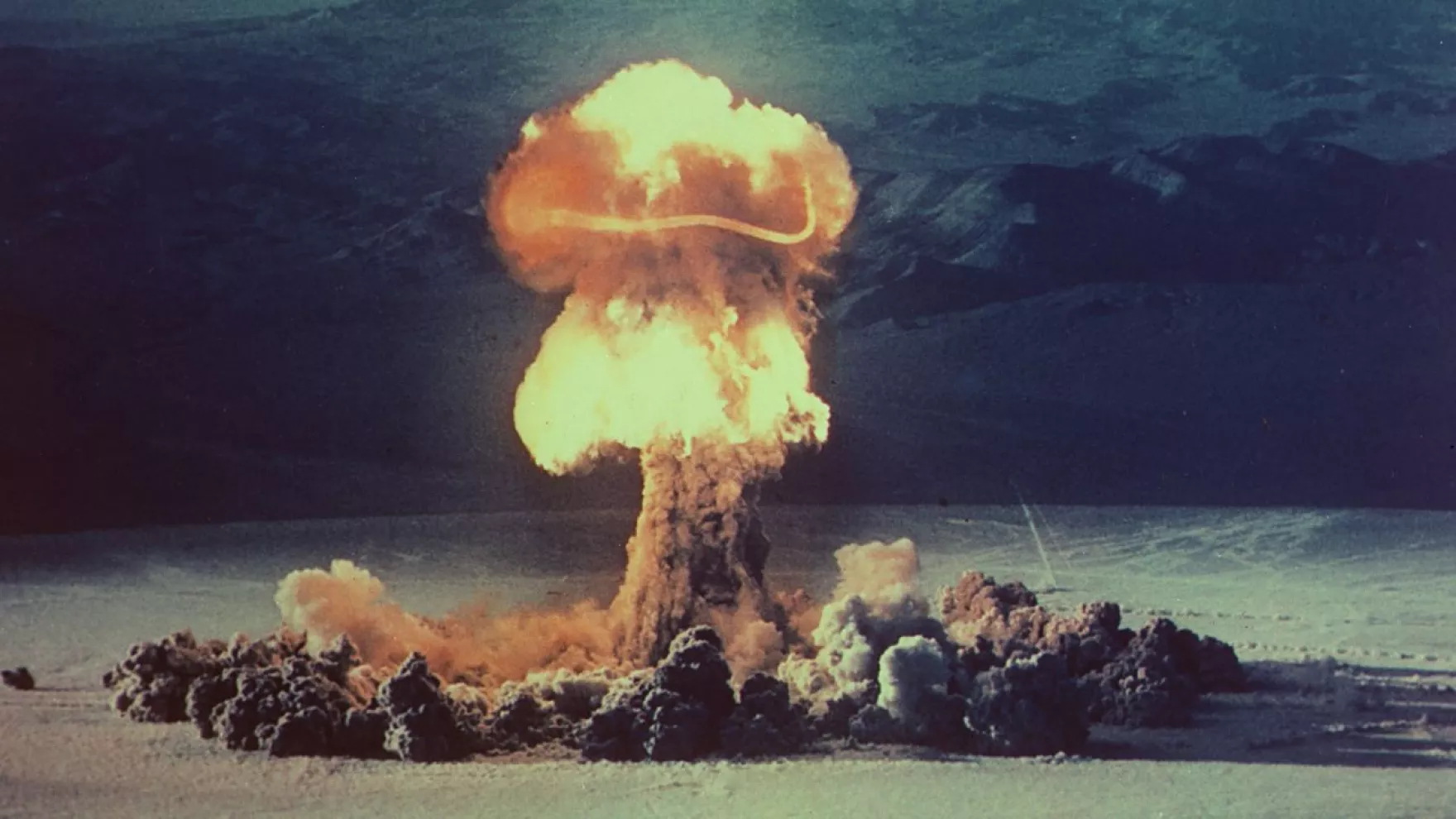
- Details
- By Native News Online Staff
Navajo Nation President Buu Nygren and Democratic House members are calling out House Speaker Mike Johnson’s failure to call a vote on the extension of the Radiation Exposure Compensation Act (RECA), which will expire on Monday, June 10, 2024.
Originally passed on October 5, 2024, RECA allowed for partial restitution to individuals who developed serious illnesses, such as cancer due exposure to radiation that occurred as the result of nearly 200 atmospheric nuclear weapons development tests from 1945 to 1962. The tests occurred during the country’s nuclear weapons development, which involved tens of thousands of workers.
Thousands of Navajo citizens developed cancer, and other illnesses, as the result of the tests.
In March, the U.S. Senate in March passed legislation. The 1990 RECA covered the states of Arizona, New Mexico, and Nevada. Since then some 55,000 have received compensation. The new version passed by the Senate expanded RECA to include Montana, Colorado, and Idaho.
President Biden says he will sign the bill into law once it hits his desk.
Johnson wanted to call for a vote to extend the current RECA until 2026. Members of Congress, both Democratic and Republican, said the Senate version is needed.
Playig politics, Johnson stalled the vote and RECA will expire on Monday.
Navajo Nation President issued this statement about Johnson’s failure to schedule a vote to expand the RECA:
I am gravely disappointed by Speaker Mike Johnson's failure to act, allowing the Radiation Exposure Compensation Act to lapse.
This inaction is an egregious injustice to the Navajo people who continue to suffer from the devastating health and environmental impacts of uranium mining. An expansion of RECA, not just an extension, is necessary to bring justice and hope to Navajo families.
From the 1940s to the 1990s, the U.S. government and private companies exploited the Navajo Nation for uranium to fuel nuclear weapons and energy critical to America's Cold War dominance. This came at a devastating cost as the U.S. failed to enforce proper safety standards.
This negligence left 523 abandoned uranium mines on our land. Miners and their families, unaware of the deadly dangers of radiation exposure, endured cancers, miscarriages and mysterious illnesses. The consequences of America's pursuit of nuclear hegemony have plagued our community for decades.
Despite the passage of RECA in 1990, justice remains elusive for Navajo families. While RECA has provided healthcare for some uranium miners and downwinders, its limited scope has left many without recourse or compensation.
The list of diseases covered by RECA is woefully incomplete. Moreover, RECA excludes Navajo miners employed after 1971 despite the unchanged nature of their work and the dangers they faced.
Senate Bill 3853 has already passed the Senate with bipartisan support. President Biden has committed to signing it into law. Yet Speaker Mike Johnson continues to play politics with our lives. His inaction is a direct disregard for the suffering of our people. It is time to prioritize people over party and bring RECA to a vote now.
I will continue to fight to ensure our people are compensated appropriately. We must address this historical injustice and provide the necessary support and recognition to those who have suffered for too long.
More Stories Like This
Native News Weekly (August 25, 2024): D.C. BriefsNavajo Nation Mourns the Passing of Former Vice President Rex Lee Jim
Deb Haaland Earns Endorsement From Communications Workers of America Local 7076
University Soccer Standout Leads by Example
Two Native Americans Named to Democratic Congressional Campaign Committee's“Red to Blue” Program
Help us defend tribal sovereignty.
At Native News Online, our mission is rooted in telling the stories that strengthen sovereignty and uplift Indigenous voices — not just at year’s end, but every single day.
Because of your generosity last year, we were able to keep our reporters on the ground in tribal communities, at national gatherings and in the halls of Congress — covering the issues that matter most to Indian Country: sovereignty, culture, education, health and economic opportunity.
That support sustained us through a tough year in 2025. Now, as we look to the year ahead, we need your help right now to ensure warrior journalism remains strong — reporting that defends tribal sovereignty, amplifies Native truth, and holds power accountable.
 The stakes couldn't be higher. Your support keeps Native voices heard, Native stories told and Native sovereignty defended.
The stakes couldn't be higher. Your support keeps Native voices heard, Native stories told and Native sovereignty defended.
Stand with Warrior Journalism today.
Levi Rickert (Potawatomi), Editor & Publisher

